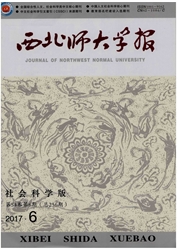

 中文摘要:
中文摘要:
新制度经济学从制度的角度解释经济发展,具有较强的现实解释力度。沿用其分析框架,在回顾评述新制度经济学理论所涵盖的大部分制度和制度分类的基础上,依据嵌入性理论选择制度代理指标构建全球制度质量测度体系,从而使得制度质量理论研究和实证研究得到相互支撑。运用聚类分析和因子分析方法,研究2003-2013年间全球55个国家和地区的制度质量,发现全球55个国家和地区的制度质量既具有异质性又表现出同质性。聚类分析表明全球55个国家与地区的制度质量被分为八个聚类组,同组中国家和地区的制度质量具有相似性。因子分析结果则表明在近30个制度代理指标中,制度质量潜在因子仅有8项,说明影响制度质量差异的潜在因素来源于市场自由度、腐败控制力度、政府能力及相关时间成本等方面。
 英文摘要:
英文摘要:
Based on reviewing the comments of most new institutional economic theories and the classification of institutions , this paper attempts to find a measurement system , and defines the Global Quality Measurement System which makes the theoretical institutional quality related to empirical research . Under the system , this paper measures and compares the institutional qualities of 57 countries and areas in the world from 2003 to 2003 .Factor analysis shows institutional qualities of 57 countries and areas have the differences and similarity . Clustering analysis show s the institutional quality in 57 countries and areas were divided into eight cluster groups . Second , the results show that the nearly 30 indexes have only eight potential institutional quality factors :freedom factor , government regulation , rights and government financial ability , market adjustment ability , the government public service efficiency , rules of time cost , level of corruption , w hich tells the institution of quality difference comes from the market freedom , control of corruption , government ability and its associated time cost and so on .
 同期刊论文项目
同期刊论文项目
 同项目期刊论文
同项目期刊论文
 期刊信息
期刊信息
